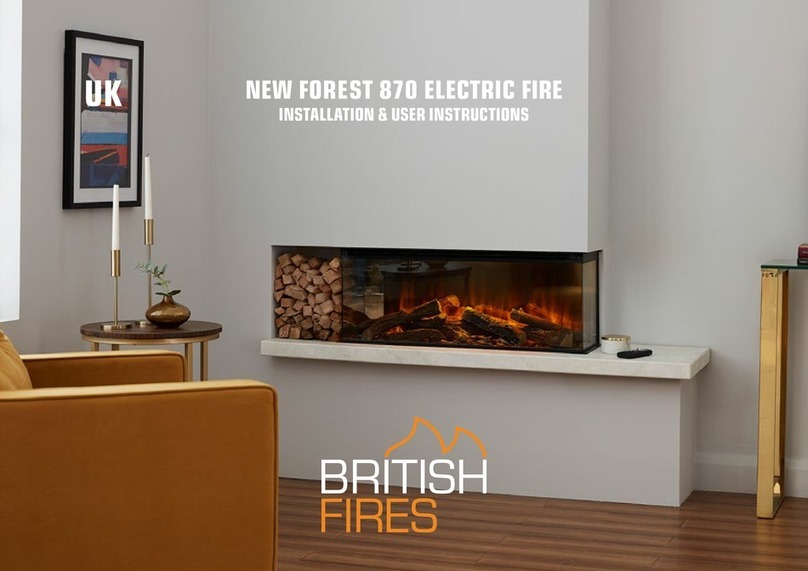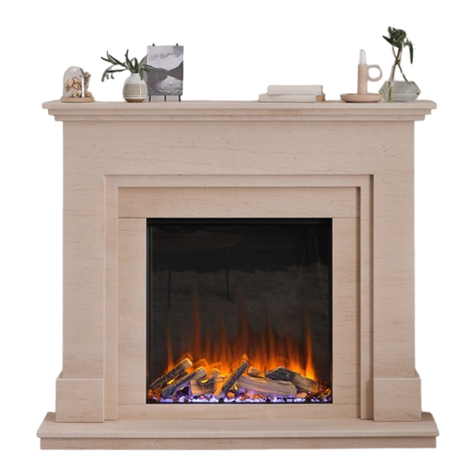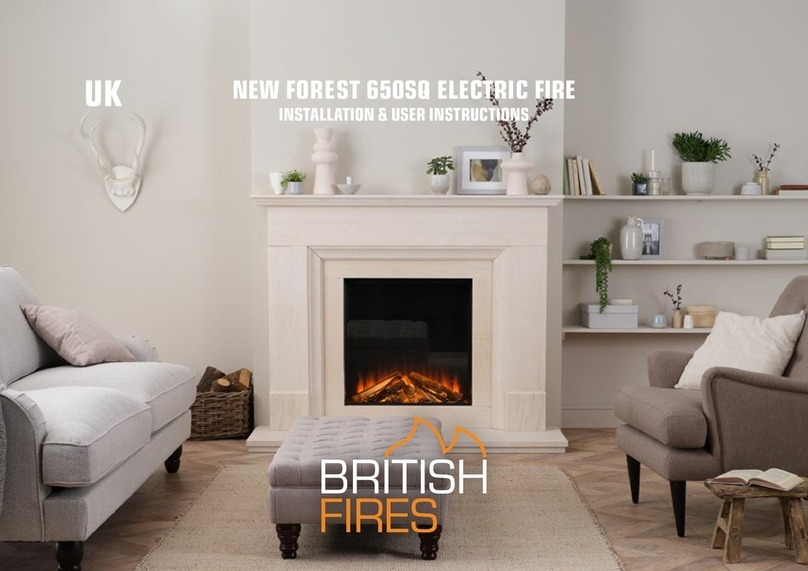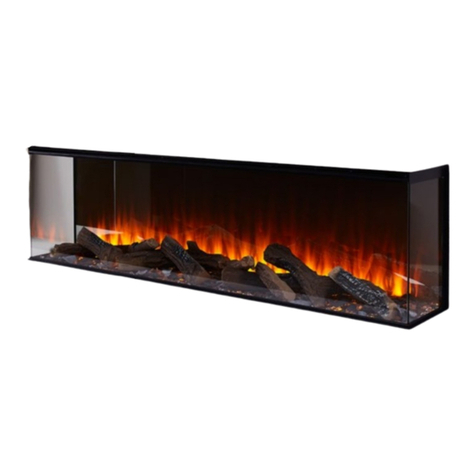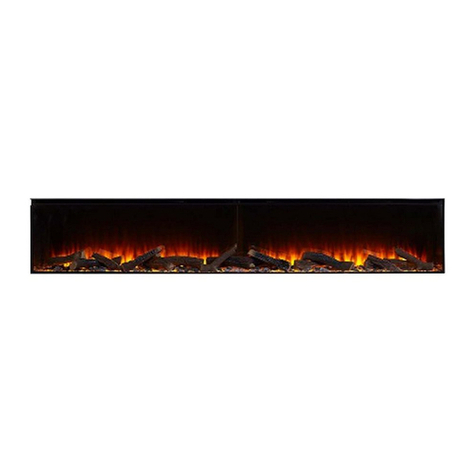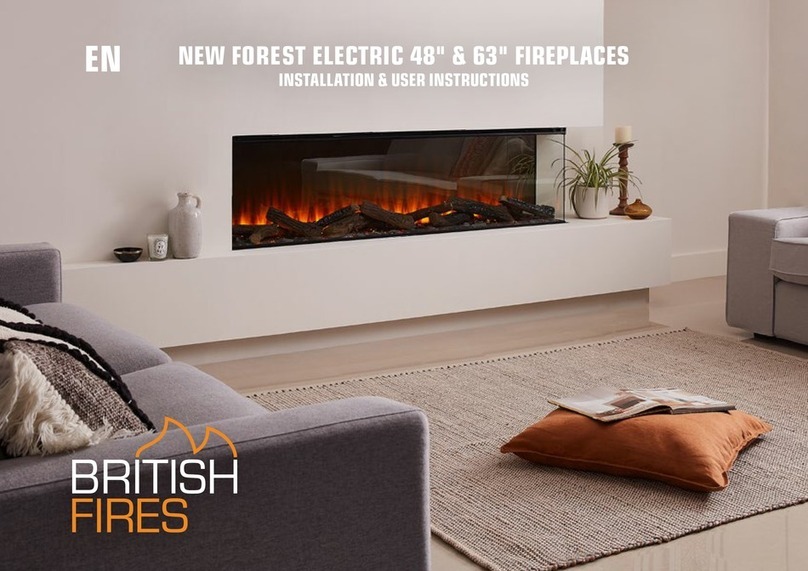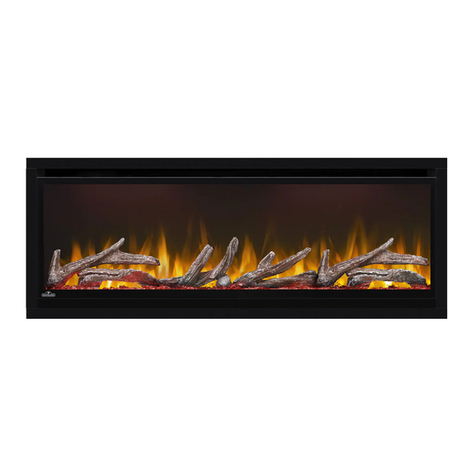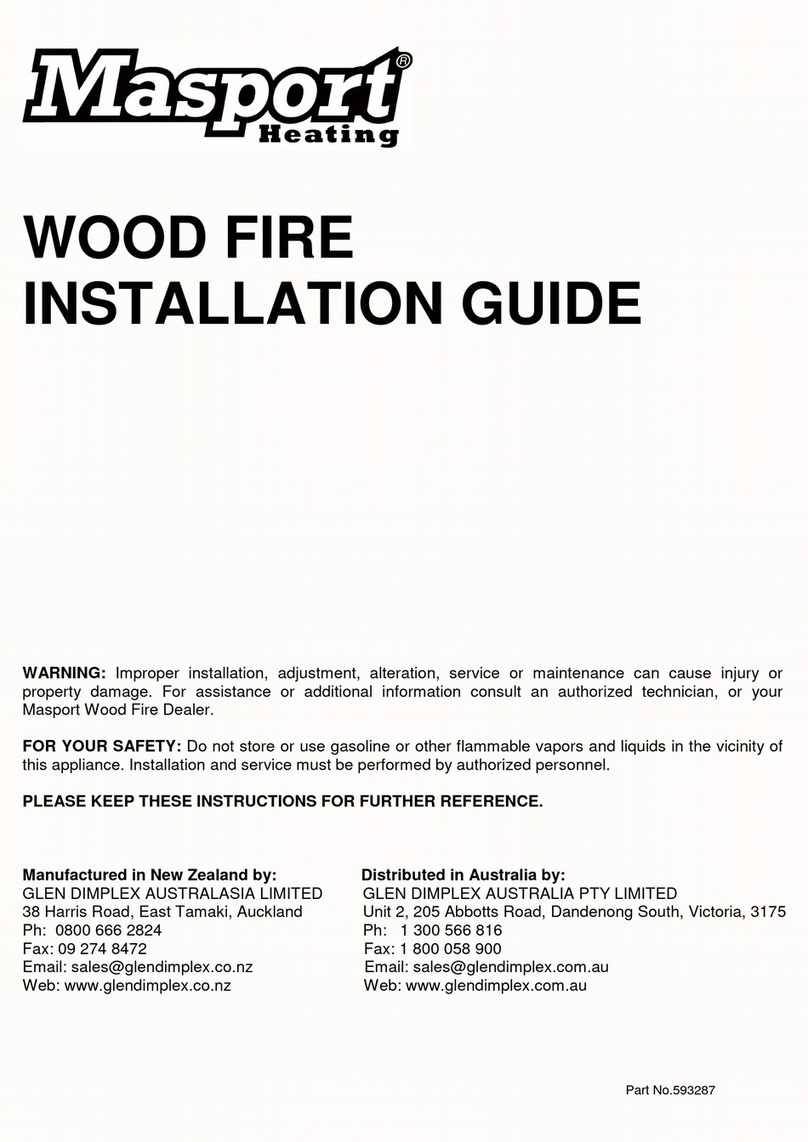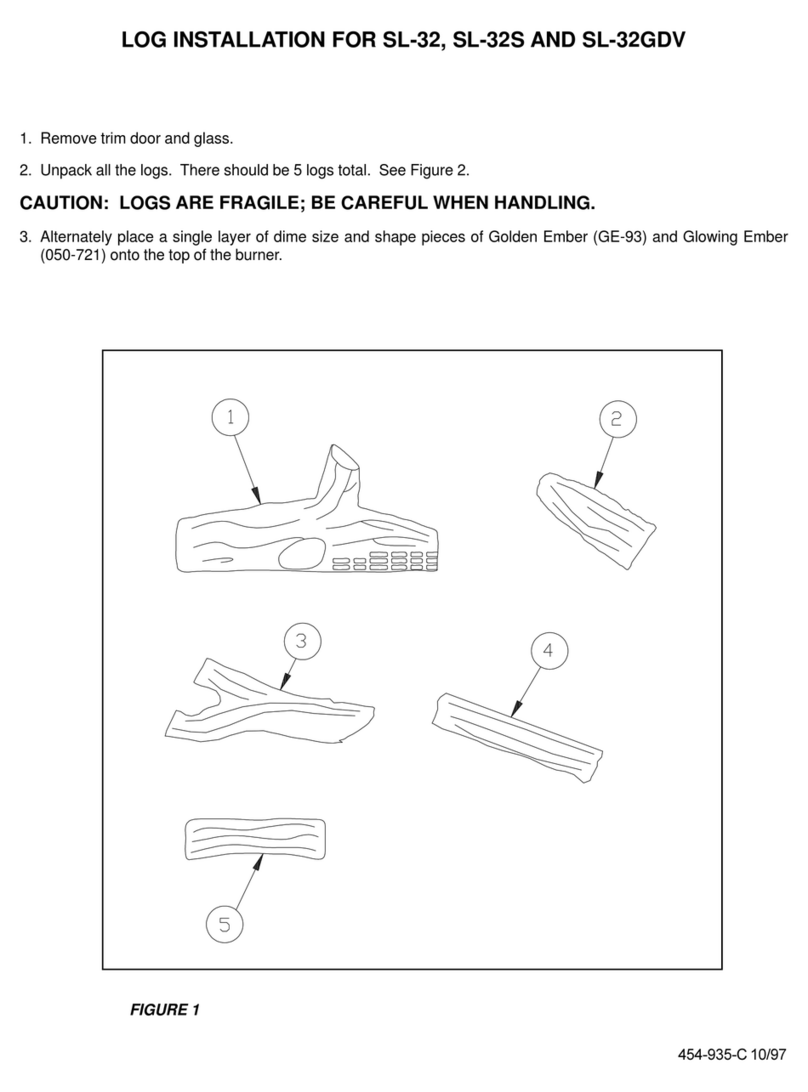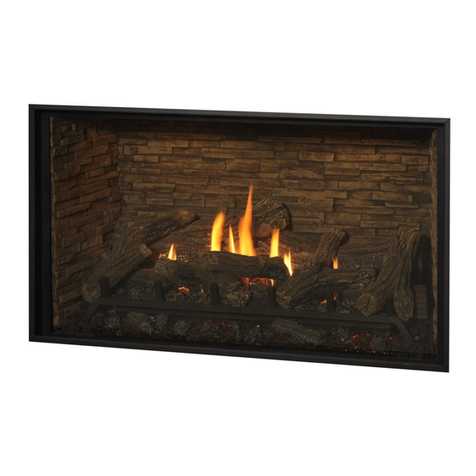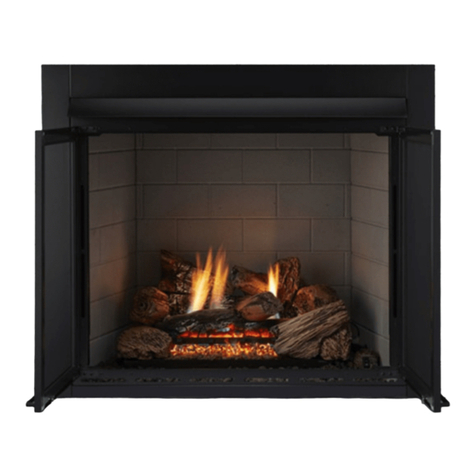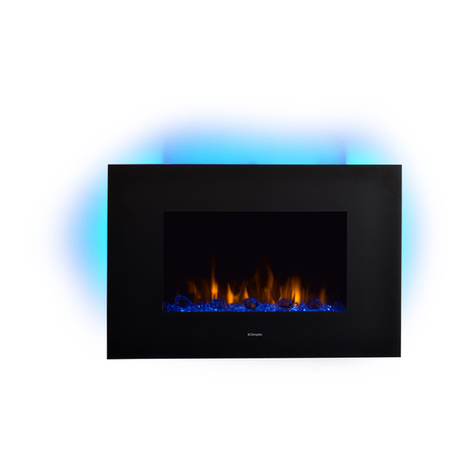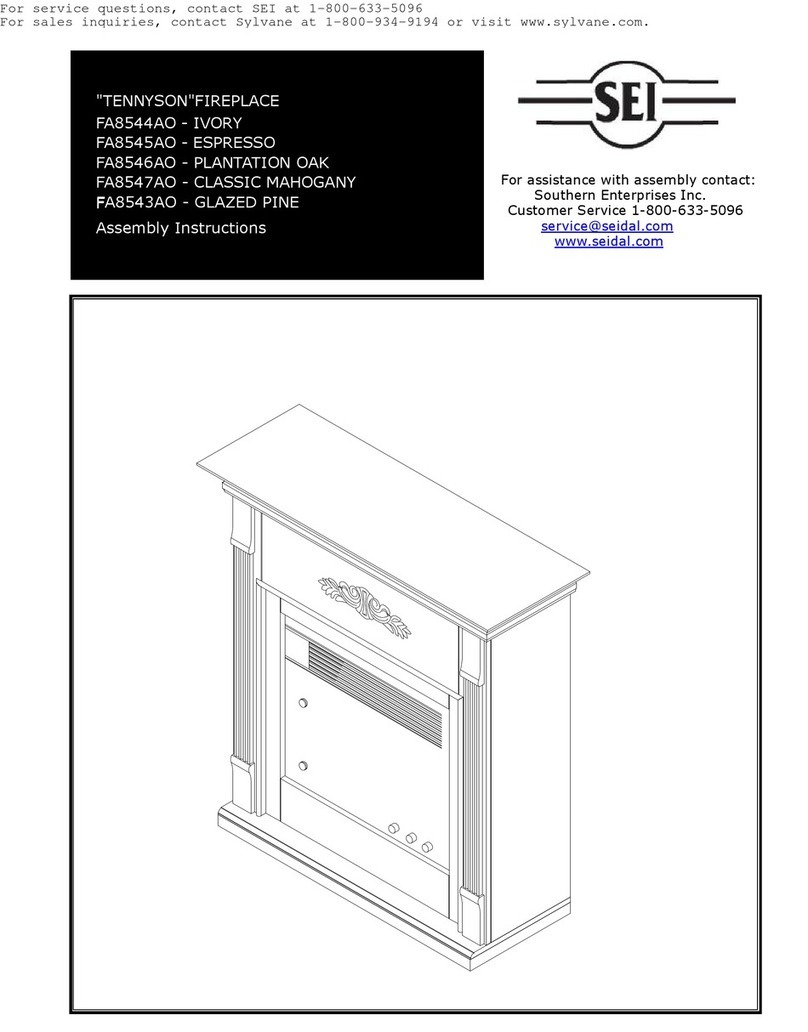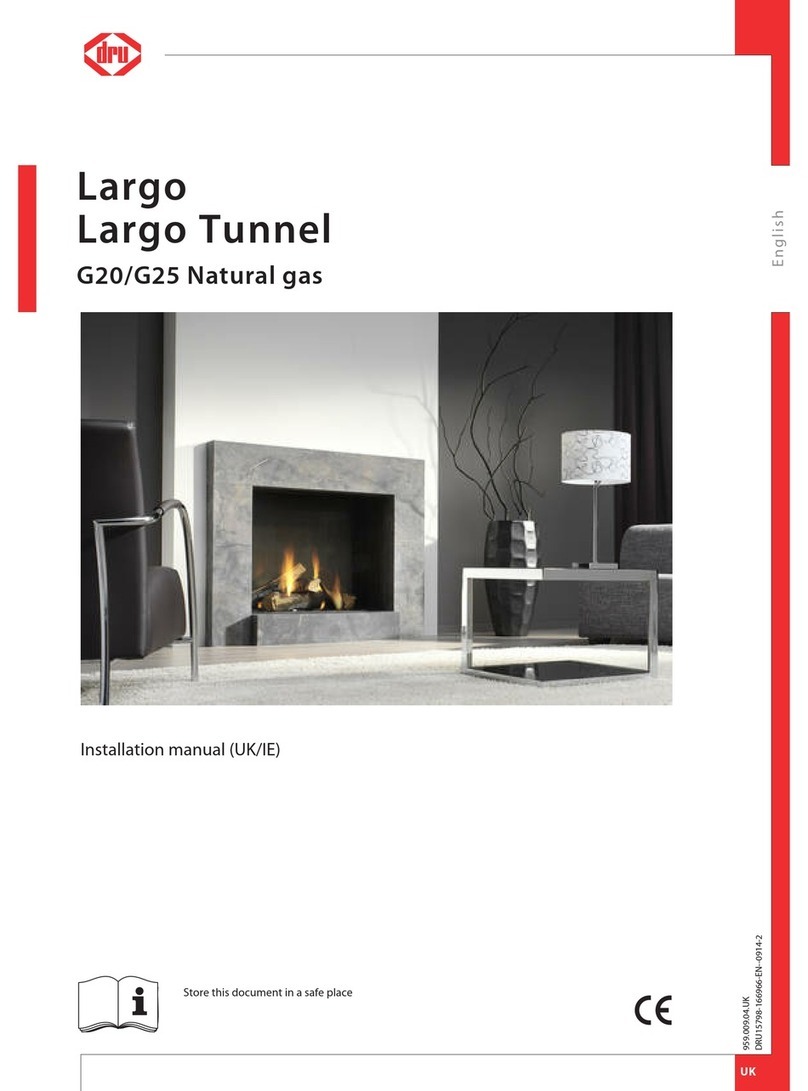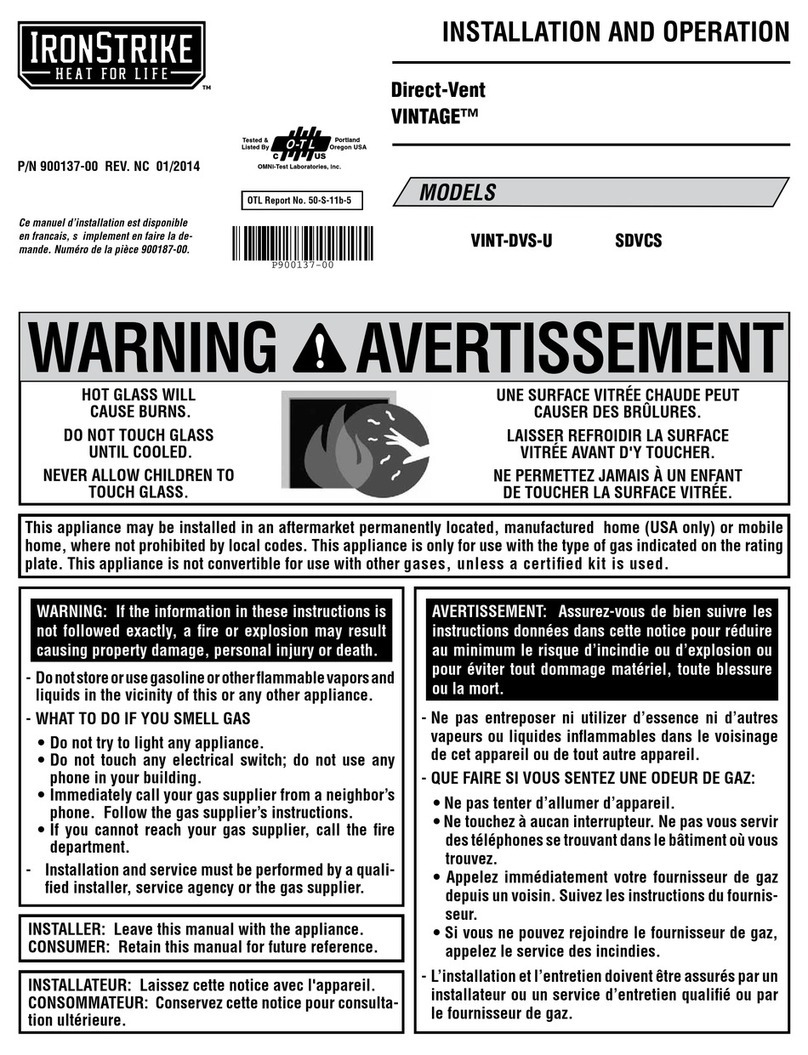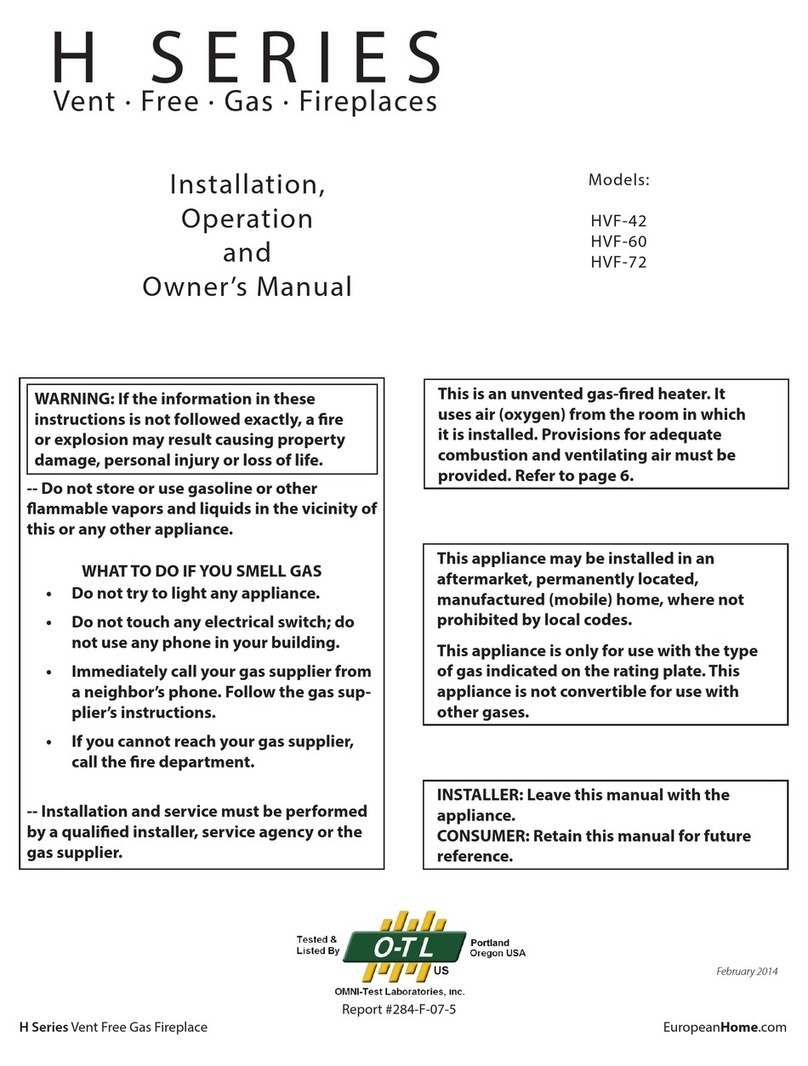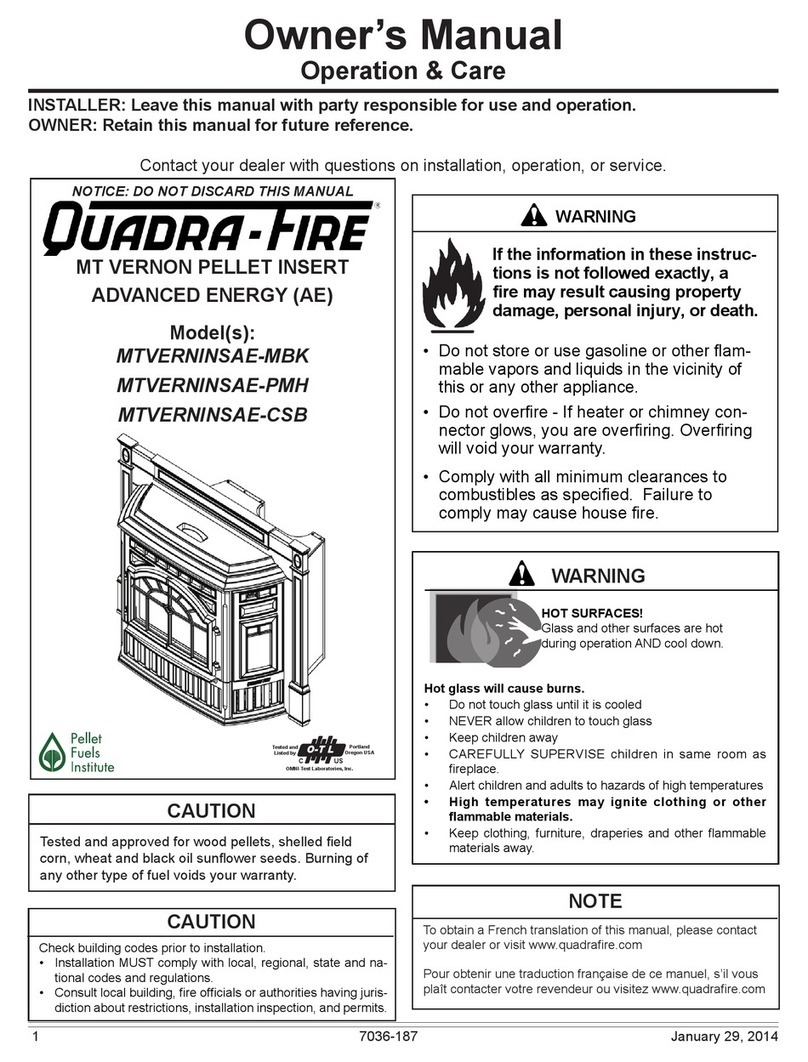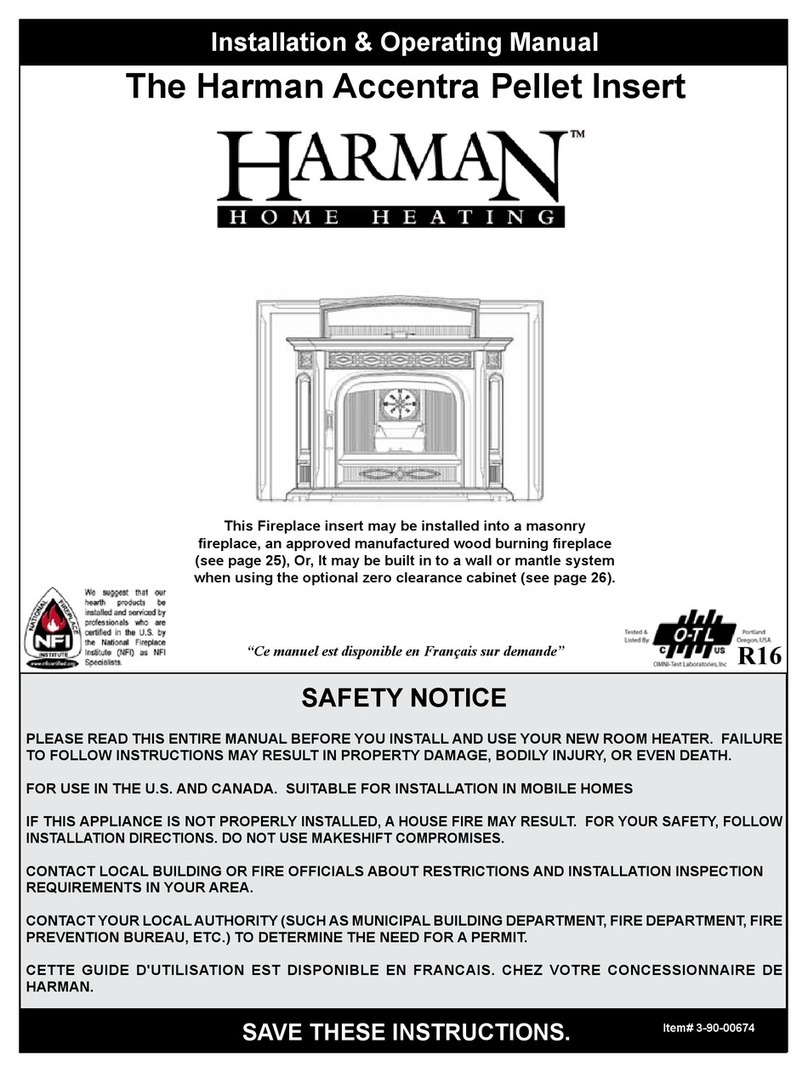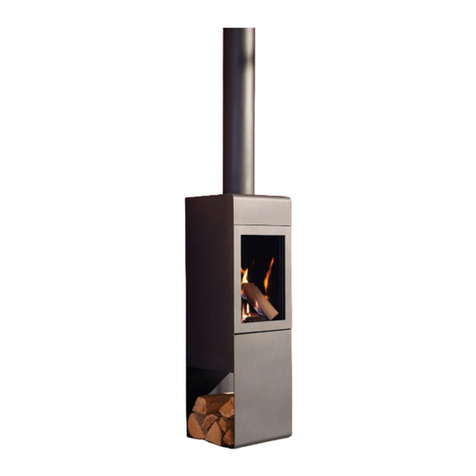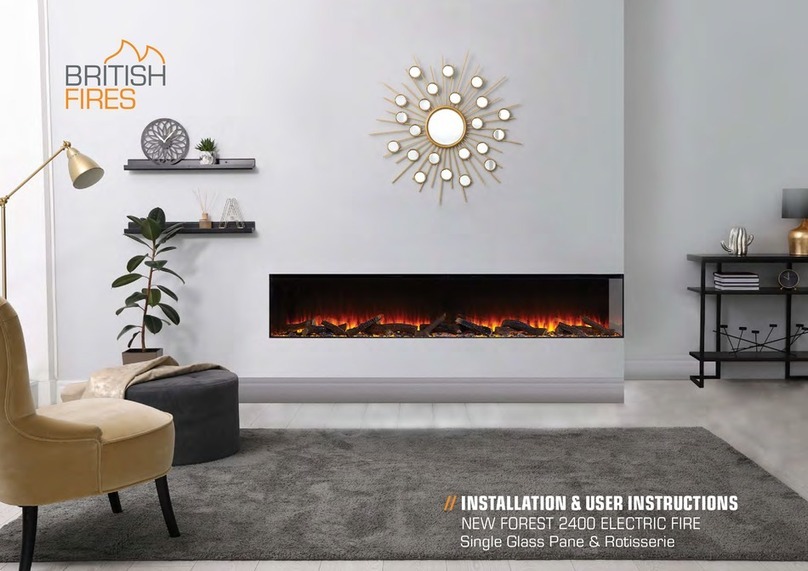
STANDBY BUTTON:
Turns the appliance ON/OFF standby,
the default settings are: heater set
to 27°C, the main flame effect is F1,
the Fuel bed is L1 (no temperature
display).
CHANGING FLAME EFFECT:
In the power-on state, press this
button, the digital screen displays
the flame position and the flame
indicator is bright, and the main
flame position can be adjusted. The
flame brightness settings are: F1, F2,
F3, F4, Set as follows:
BUTTON DISPLAY FLAME
EFFECT
1st
Press F1 Full
2nd
Press F2 Medium
3rd
Press F3 Low
4th
Press F4
Cycle
through
settings
HEATING OPERATIONS:
1) Press the heater button to turn
the heating function on and off and
adjust the temperature setting.
Heater is divided into temperature
settings: 17°C, 18°C, 19°C, 20°C,
21°C, 22°C, 23°C, 24°C, 25°C, 26°C,
27°C, ON, 17°C (Cycle)
2) Press and hold the heater button
for 3 seconds to convert the temper-
ature unit from °C to °F. The temper-
ature display window will flash. After
the temperature is set, the display
unit will flash 5 times, then automat-
ically save the settings and exit the
setting state. After the display unit
is turned on, if there is no operation
within 10 seconds, the setting
status is also exited.
3) Fan delay function: After the
appliance is turned off, the fan will
continue running for 15 seconds
then stop.
Open Window Detection function: When
the appliance is heating and the
ambient temperature suddenly drops
≥5°C within 10 minutes, and the envi-
ronment cannot be warmed up within
30 minutes the appliance will auto-
matically display “OP”. The heating
function will then be automatically
turned off, and when the “OP” is
displayed, it can be turned off and
then restarted by turning off and on
the appliance to clear the fault code.
4) This appliance has a non-self-reset-
ting overheat protection device
(thermal cut-out) which will activate
if the air inlets or outlets are
obstructed. For safety reasons the
fire will NOT switch on again auto-
matically, the following procedure
must be carried out before the fire
can be operated.
NOTE: The flame-effect will
remain operational if the
cut-out is activated, only
the fan heater is prevented
from working.
Switch OFF the appliance at the wall
socket or outlet. Leave the fire OFF
for a period of no less than 10
minutes, ensuring all obstructions
are removed. Switch the appliance
ON at the wall. Ensure the appliance
is turned ON at the control switches.
If the fire fails to operate correctly,
repeat the above procedure.
Refer to section 13.0, page
20 for more information
about the Safety Cut-Out
System.
FUEL BED COLOR OPTIONS:
Once powered, press the “Fuel Bed”
button and the LCD screen on the
remote will display the fuel bed icon.
Now, the fuel bed color can be
adjusted. The different settings are:
L1, L2, L3, L4; Fuel bed light. Set as
follows:
BUTTON DISPLAY FLAME
EFFECT
1st
Press L1 Orange
2nd
Press L2 Blue
3rd
Press L3 Orange +
Blue
4th
Press L4
Cycle
through
settings
SETTING SLEEP TIMER:
In the timed display, press the “Sleep
Timer” button to adjust the time, plus
one hour for each press. (You can’t
enter the weekly timing selection,
you can only set the current
automatic shutdown time. This
function is available when the weekly
timing function is turned on. Will not
operate). Timing range: 1H, 2H, 3H,
4H, 5H, 6H, 7H, 8H, 9H, OF, 1H
(cycle adjustment).
Control Down Lighting:
Turns the down lighting lights on and
off.
Setting Clock and Timer:
Use the date button to choose from
Monday to Sunday or week timer
mode option. Option mode:
1-2-3-4-5-6-7-A-oF.
CLOCK SETTING:
1) At standby state (after the unit is
plugged in and before pressing “main
power”), press and hold the Setting
button on the remote for 3 seconds,
the digital display will then flash
“00:00”.
2) Press on the remote control to
set the hour, press the remote
control to set the minutes.
3) Press “Setting” to enter the
setting of the week timer. Press
to select Sunday to Saturday,
The date symbol will light up after the
day is selected. When finished, press
the button to exit setting.
12.0 OPERATING THE KNIGHTWOOD
NOTE:
The current clock must be set after the initial power-on or power-off, otherwise the clock will remain “00:00” status
and you won’t be able to set the week timer function.
18© 2023 British Fires

